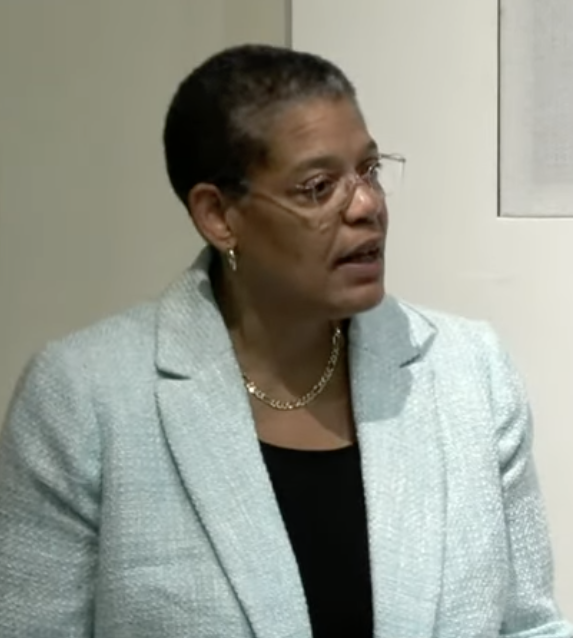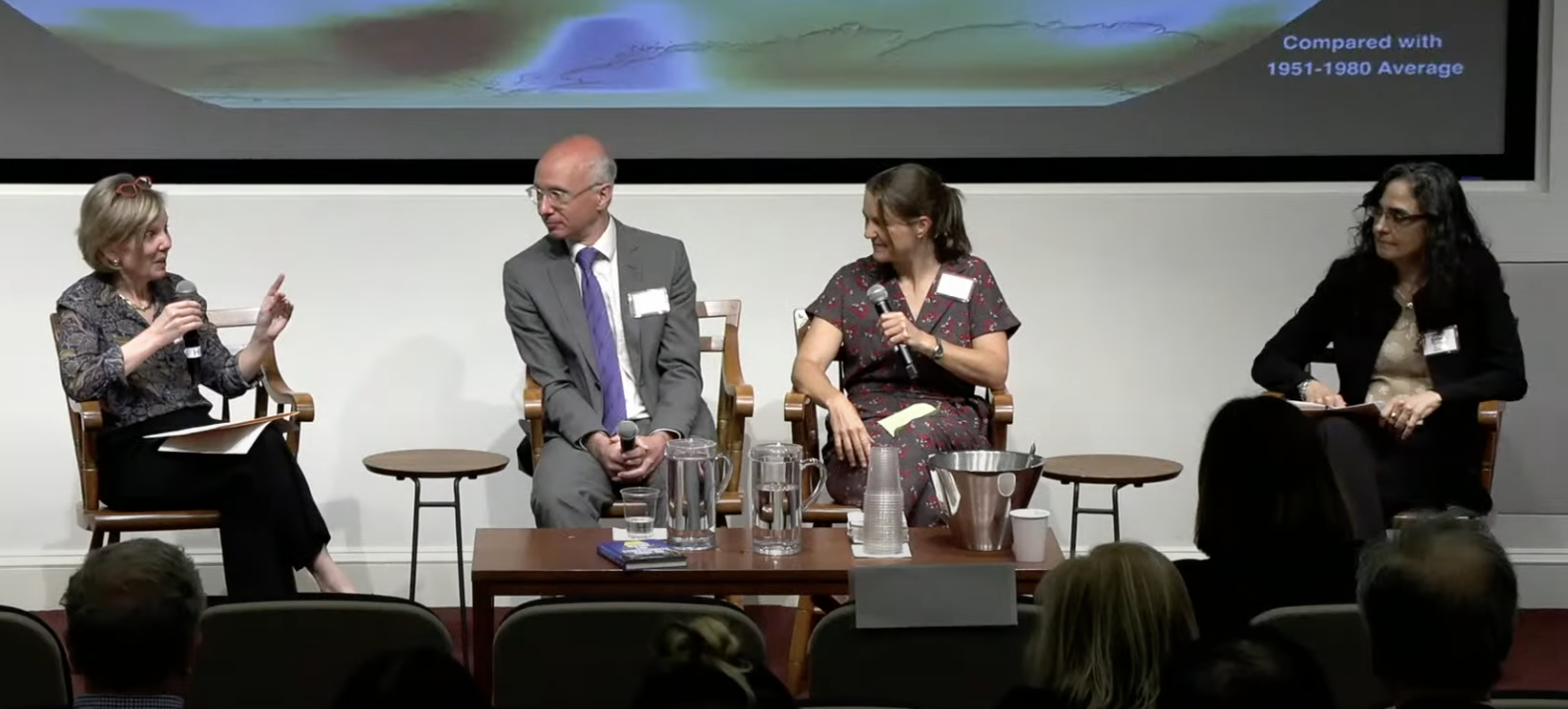May 10, 2023 – The wide-ranging health impacts of climate change, including food insecurity, migration, war, and the spread of infectious diseases—and practical solutions to address these problems—were the focus of a half-day symposium hosted by Harvard T.H. Chan School of Public Health.
The May 8 event, titled Climate, Health & Equity: Toward a Sustainable Future, was part of the inaugural Harvard Climate Action Week, sponsored by the new Salata Institute for Climate and Sustainability.
Speakers at the symposium, held at Harvard Business School’s Spangler Center, included community activists, state and federal administrators, and scientists.

“Climate change is not a distant abstract concept or threat,” said Harvard Chan School Dean Michelle Williams in opening remarks. “Climate change is harming our health, right here and right now. Climate change is deepening inequities, right here and right now. And we all know that we have the tools to tackle climate change, right here and right now.”
The symposium featured a brief video highlighting Harvard Chan School’s decades-long legacy of tackling the health impacts of climate change, such the landmark Six Cities Study, which led to a tightening of U.S. air pollution standards in the 1990s, and the founding of the Center for Climate, Health, and the Global Environment (Harvard Chan C-CHANGE) in 2018.
…
Marrero, a postdoctoral research fellow, discussed her studies of nutrition, small-scale farming, and climate resilience of island nations, particularly in Puerto Rico. She noted that although Puerto Ricans traditionally grew their own food, the situation changed in recent years to the point where, today, 85%-95% of the food in the country is imported—much of it highly processed and unhealthy. “This radically affects the health of people, of local economies, of livelihoods, of ecosystems,” Marrero said. Research she’s worked on has shown that people who eat locally produced foods have better nutritional status. She also noted that there is much to be learned from small-scale food producers about healthy land stewardship, which can both bolster livelihoods and reduce food insecurity. Studying how small producers operate “can really help us think about what are the practices that we can learn from on a larger scale,” she said.
…
Climate change and infectious diseases

Increases in malaria and diarrheal diseases, even another pandemic—such are the infectious disease threats posed by climate change, according to three experts from Harvard Chan School who spoke during a final panel.
Aaron Bernstein, C-CHANGE interim director and soon-to-be director of the Centers for Disease Control and Prevention’s National Center for Environmental Health and the Agency for Toxic Substances and Disease Registry, said that as temperatures increase, insects move—along with the diseases they carry. For example, he said, tick-driven Lyme disease is now showing up in Canada for the first time, and avian malaria, transmitted by mosquitoes, is impacting birds at higher altitudes than ever in the mountains of Hawaii. Marcia Castro, Andelot Professor of Demography, noted that deforestation in Brazil puts people in closer contact with wildlife, raising the risks of zoonoses—diseases that jump from animals to humans. And Caroline Buckee, professor of epidemiology, talked about how extreme weather events lead poor people living off the land to become “climate refugees,” moving to cities to find work. “If you were going to design a perfect situation for a global pandemic, you put them in crowded places and connect them by global travel,” she said. “That’s exactly what we have.”



